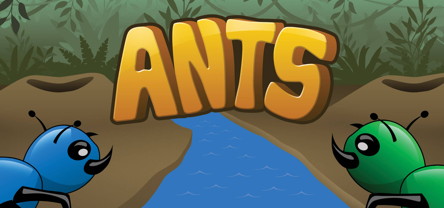|
August 2009
Our kids are now 3 1/2 and almost 6 years old. Here's what we've learned so far.
Car Camping
Start them early. We didn't start car camping with Nathan until he was almost
2 years old, but once we did it we wondered why we didn't do it earlier. He
loved it, and we didn't have any problems. With Jared, we started him off at
just 4 months. That might be a tad early if your child is still breastfeeding,
but that's up to you.
At first we used a portable crib inside the tent. Once they got older
(maybe 2 years old) they were in sleeping bags. Our kids generally sleep
better than we do when camping. They love being in the tent with us, since
they have their own rooms at home.
Buy some extendible metal sticks for roasting marshmallows over a campfire.
There's no guarantee you'll be able to find a wooden stick at your campground
for this purpose. They're cheap and don't take up much space. And of course,
don't forget to bring the graham crackers, chocolate, and marshmallows. The
kids always look forward to this, even if they don't always eat it all.
Sometimes they just want Oreo cookies instead.
When you are planning your trip, be sure you know where the nearest hospital
is. You never know when your child may need a trip to the emergency room,
and you don't want to be scrambling to figure out where that is at the last
minute. (Admission: when I was 8 years old, I fell while running at Crater Lake and my parents
had to take me that night to get stitches in my knee; I still have the scar
to prove it.)
For sleeping bags, we went with Big Agnes for the kids, as they sell bags with
slots for sleeping pads. This prevents the bag from sliding down the pad during the night,
which is sure to happen with kids. (Actually I am wondering if I should get this for myself.) Our
kids are polar opposites when it comes to sleeping -- one buries himself inside his sleeping
bag, halfway down, while the other scooches up and out of his bag during the night. Either way,
they both seem to sleep fine.
Hiking
You can start hiking with your kids almost immediately. We started Nathan off
when he was only 3 months old, and Jared when he was 2 months old. Keep in
mind that when they're this young, their necks are not very strong, so
you should keep them in the front, not the back. Something like a Baby Bjorn is
fine. At this point, how far you hike is completely up to you and how much
you think you can handle. The baby will probably sleep most of the time and
probably won't mind being out there a long time. Of course, make sure they're
covered by a hat or blanket. Bring plenty of diapers and bottles (if you're
bottle feeding). And don't forget to keep their legs and feet warm, too.
Once your child's neck is strong enough, you can put them in a rear child
carrier such as those made by Kelty or Deuter. For us, this point was about 8
or 9 months. At this point your child may
spend more of the time awake, so you may need to bring along a toy to strap
to the carrier to keep them occupied. I also carried a mirror so that I could
look back at them. And, again, at this point how far you go is pretty much up
to how far you're willing to carry them. As they get older, they may want to
walk a bit themselves, but bring the carrier because they're probably not going
to want to walk the whole way. Plus, they'll be slow.
The next big step is when your child can do an entire hike all by themselves.
There will come a point where they'll either want to walk themselves, or they'll
be so heavy that you won't want to carry them. For us, we put our foot down
at 3 years old. After that, they were on their own.
Your back, of course, will be relieved that you don't have to carry them anymore.
However, the downside is that the distance you can now cover is lower. As a
general rule of thumb, I have read that kids should generally be able to hike
their age -- as in, 4 year olds should be able to hike about 4 miles. We found
this to be generally true, but it really varies with terrain. I don't think
gradual climbing adversely affects them too much, but steep or rocky trails do.
Expect your pace to be much slower, as well. You might be accustomed to hiking
2 or even 3 miles per hour on your own. With kids of 3-4 years old, expect something closer to
1 mile per hour -- without stops. With stops, a 3-mile hike will turn into a
4 hour trip. This is fine, just keep that in mind when you're setting your
expectations. As they get older, maybe 6 or 7 years old, they'll start to go much
faster.
Here's a list of the maximum distance and climbing our kids did at various ages.
When you child is first starting to hike on their own, take it slow. Don't
push them at the start, and don't expect them to necessarily hike their age
right away. After they've done a few hikes and you've been able to gauge their
abilities, however, don't be afraid to push them, if you know they can handle
it. There's also a difference between them handling it physically and mentally.
If you keep them well fed and rested they'll be able to go further. Having them
take a nap just before or even in the middle of a hike will help them go further.
On the other hand, if you schedule the hike during their usual nap time and
you're hoping they'll just hike through it, you're asking for trouble. Plan
a hike to a destination, like a lake or beach, where you can stop for lunch and
they can rest or play.
We sometimes bring buckets and shovels for the kids to play with at lakes, but
they're often content just to throw rocks into the water over and over again.
You usually don't have to bring much to keep them entertained. They're not
teenagers yet.
I usually use trekking poles, and the kids like to be like dad and have their
own poles. There are trekking poles made especially for kids, if your kids
are interested in using them. They can be useful, especially in helping
kids from falling a lot, but they have to use them properly. If you're going to
get poles for your kids, teach them how to use them. Otherwise, they'll be
dragging them behind them like an anchor. Also, be prepared to carry the poles
for them when they don't want to use them anymore. After tiring of this, we
decided to tell them that if they brought their poles and didn't use them, they'd
have to carry them themselves.
Accept the fact that your kids will fall sometimes. Bring lots of bandaids
(and expect that if one child gets a bandaid, the other child will want one,
too). We've started having them wear cycling gloves while hiking, and that's
prevented a lot of skin abrasions on their palms.
Your kids will probably actually enjoy carrying their own packs, as long as you
start them early. We didn't have Nathan carry his own pack until he was 5 years
old, and at that time only his own water. Of course, upon seeing this,
the younger one wanted to carry his own pack, too, even though he was not quite 3.
As they get older, you can have them carry a little more -- water, snacks (they'll
love picking out their own snacks to put in their packs), and any toys they might
want to carry themselves. Sure, you could carry this all for them, but I think
it's nice for them to become a little self-reliant. Plus, this way, you don't
have to tell them they can't bring something on a hike. If they want to bring it,
fine, as long as they carry it themselves.
It bears mentioning that you should always
carry a small shovel and toilet paper with
you, even on short day hikes with your kids. While adults can do a day hike and
usually not have to worry about it,
kids might need to do number 2 at any time. Teach them how to do it the right
way. How they handle this is probably highly dependent on the child and
at what stage of potty training your child is at. I'll just say that the experience
between our two different kids has been completely different. Good luck to you
with this.
While I might prefer to go peak-bagging if I were hiking on my own, my kids would
much rather prefer a hike to a lake. I am guessing most kids are probably the
same. Keep that in mind when you are choosing your destination.
Keep your kids engaged while hiking. Point out any wildlife you see.
Point out interesting plants and see if they can identify them later.
And don't forget to stop and have them be quiet and listen to the sounds of
nature.
Backpacking
Once you have kids, you might not even think about backpacking with them. Don't
make that mistake. You can still do it. If you have one child, you might even
be able to do it before they start walking on their own, if you're strong enough
to have one parent carry the child and another carry everything else. We didn't
try this before having the second child, however.
Once you have two children, you pretty much have to wait until they can both hike on their own,
since it would be a daunting task to carry one child and have the other parent carry enough
equipment for a family of 4. Once they are old enough, it's just a matter of you calculating
how much you all can individually carry and how much you need to bring. With adults, the
recommendation is to carry no more than 1/3rd to 1/4th of your body weight. For younger kids,
I would guess that 1/4th to 1/5th would be a better gauge. Our kids carried a little more than
1/6th of their body weight without any trouble. If pressed, they probably could have carried
more, but they probably would have complained. I am hoping that once they get older than can
carry closer to 1/4th of their weight.
Finding a 4-person backpacking tent is pretty hard. We use a Big Agnes Pine Island 4. While
technically not a backpacking tent, it's relatively light at 10.5 pounds (much lighter than our
big car camping tent), and I've found a way to pack it so that I can carry it on the bottom of
my pack. If you only have one child, finding a 3-person backpacking tent is much easier,
and there are many options to
choose from.
Start small. You can have a great backpacking trip with the kids even if you end up putting
up the tent only 2 miles from the trailhead and only stay for one night. Once you get that under your belt,
you can expand on that. Try to look for places where campfires are allowed, as of course kids love
campfires. Such places are relatively rare in backpacking, but they do exist.
Before Your Kids Start Kindergarten
You may not realize it now, but once your kid starts Kindergarten, everything changes.
Everything now revolves around school and their school schedule. Your child
will now be in school September through mid-June of every year for the
next 19 years.
Sure, that leaves your summers free, but if you want to head somewhere where
the seasons are reversed, your options are limited. For example, if you want to
head to Australia or New Zealand or Patagonia during their summer, you're pretty much limited
to the 2 weeks your child probably gets at Christmas / New Year's. Want to spend
a week looking at fall colors in October? Sorry, no dice. Want to do the
Annapurna Circuit? Sorry, June through September is monsoon season.
Now, I suppose you could just pull your child out of school, but you might feel
guilty about it. I won't stop you. But my point is that you should try to do
these types of trips before your child starts Kindergarten in the first place.
Otherwise, you may end up waiting 19 years.
Summary
Above all, have fun and be safe. Before you go, don't be afraid to be ambitious with your plans.
Kids are resilient and may surprise you with what they're capable of. When you go, be flexible.
Even the best laid plans may need to be changed if your children need a break. This may sound
contradictory, but the point is that while you can't be a drill sergeant, you can't hide in a
hole at home, thinking you can't do anything with the kids until they're teenagers.
I mentioned to a friend that we wanted to do the John Muir Trail (a 3-week backpacking trip)
but that we would have to wait at least
another 5 years. The friend was confused, wondering why it would take us that long to plan.
He didn't realize we wanted to do it with our kids. Sure, we could
try to find someone to watch the kids for 3 weeks (maybe), but it would feel strange for us to
do so now. Spending time with your kids in the outdoors in precious, providing
memories that will last
a lifetime.
Car Camping Gear List For Kids
-
Sleeping bag and pad, or portable crib for younger kids
-
Pillow
-
Extra blankets - if you're at all concerned about them getting cold
-
Portable tub for younger kids, portable shower for older kids (or just let them be stinky)
-
Video camera - you'll definitely want to capture some of these moments in videos
-
Kid-sized plastic plates, bowls, cups, and utensils
-
Kid toothpaste and brush (they probably hate adult toothpaste)
-
Diapers, wet wipes, diaper cream
-
Small shovel, toilet paper
-
Pull-ups for older kids (if you're at all concerned, since it's hard to dry a wet sleeping bag while camping)
-
Kid's clothes (including pajamas, jacket, rain jacket)
-
Balaclava - great for keeping kids warm, and it's lightweight
-
Medicine for kids (tylenol, allergy medicine, etc.)
-
Extra band-aids
-
Toys - make them feel like they're part of the trip planning by having them pick which toys they want to bring
-
Books for reading at night
-
Stuffed animals
-
Crayons and coloring books - for the tent or picnic table while you're doing camp chores
-
Headlamp
-
Kleenex
-
Bug repellent
-
Marshmallow roasting sticks
-
Portable clip-on chair - picnic tables are not designed for young children
-
Plastic buckets and shovels
-
Frisbee, ball, bat, other outdoor toys
-
Milk or formula
-
Child carrier
-
Sun hat
-
Sunglasses (especially at high altitude to prevent UV damage)
-
Cycling gloves
-
Kid trekking poles (optional)
-
Sunscreen, lip balm
-
Swim clothes, sandals
-
Whistle - each child should have one, for signaling if they get lost
|


